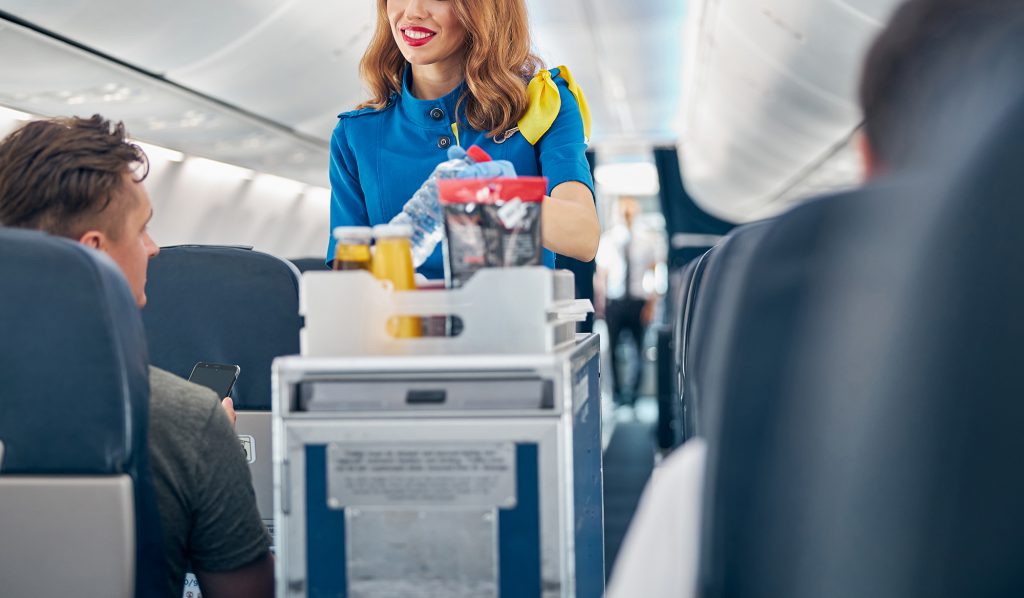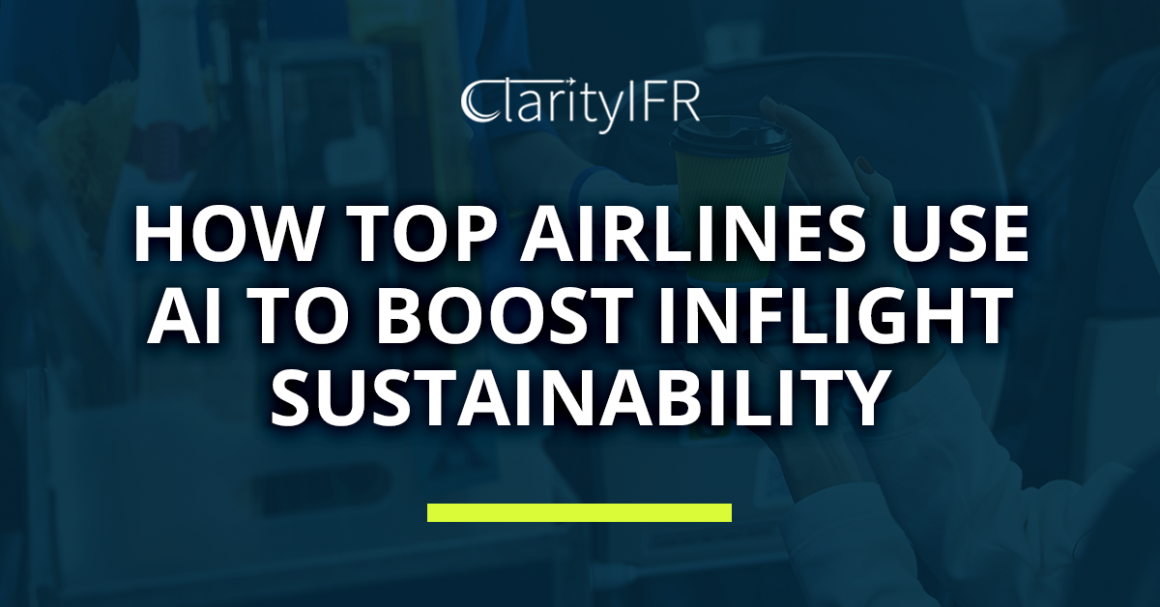When environmental sustainability is at the forefront of global concerns, the aviation industry has to find innovative solutions for reducing their carbon footprint.
With each flight releasing substantial amounts of carbon dioxide, airlines are under pressure to develop strategies that not only meet net-zero goals but also drive business growth.
Enter: Artificial Intelligence (AI).
Leading airlines are adopting AI-powered solutions to make smarter and more sustainable decisions. By harnessing AI, airlines can optimise various aspects of their operations, including inflight retail experiences, to simultaneously enhance revenue generation and reduce environmental impact.

One of the key areas where AI is making a difference is in inventory management. AI-driven solutions help airlines minimise stock wastage and weight onboard, directly impacting their bottom line while promoting sustainable practices.
According to a report by McKinsey & Company, AI-driven optimisation of fuel consumption can result in savings of up to 15% for airlines, translating into billions of dollars annually.
Dynamic supply management systems, such as the ClarityIFR suite, define the best-selling food, drinks, and products to be packed and transferred onboard each flight, reducing the emissions associated with overstocked items that don’t sell.
AI also enables airlines to deliver hyper-personalised retail experiences to passengers. By analysing factors such as demographics, location, and flight destination, intelligent software can accurately predict product demand, minimising waste and onboard weight.

The economic implications of AI-powered solutions in the aviation industry are substantial. With global AI adoption expected to reach $2.2 billion by 2025, airlines stand to benefit from improved fuel management, reduced operational costs, and increased revenue from enhanced retail experiences.
Sustainability is evolving into a revenue-driven business model, driven by consumer awareness and investor interest in sustainable practices. AI will play a pivotal role in supporting airlines in this transition, influencing everything from supply-chain management to fuel optimisation.
In conclusion, AI presents a significant opportunity for airlines to bridge the gap between sustainability goals and business objectives. By optimising inflight retail experiences and operational efficiency, artificial intelligence can help airlines achieve their environmental targets while driving economic growth.
For more information on how ClarityIFR, a Data Clarity brand, can support airlines drive ancillary revenue, reduce fuel consumption, and improve the customer experience through AI-powered solutions – reach out to our experts today.

